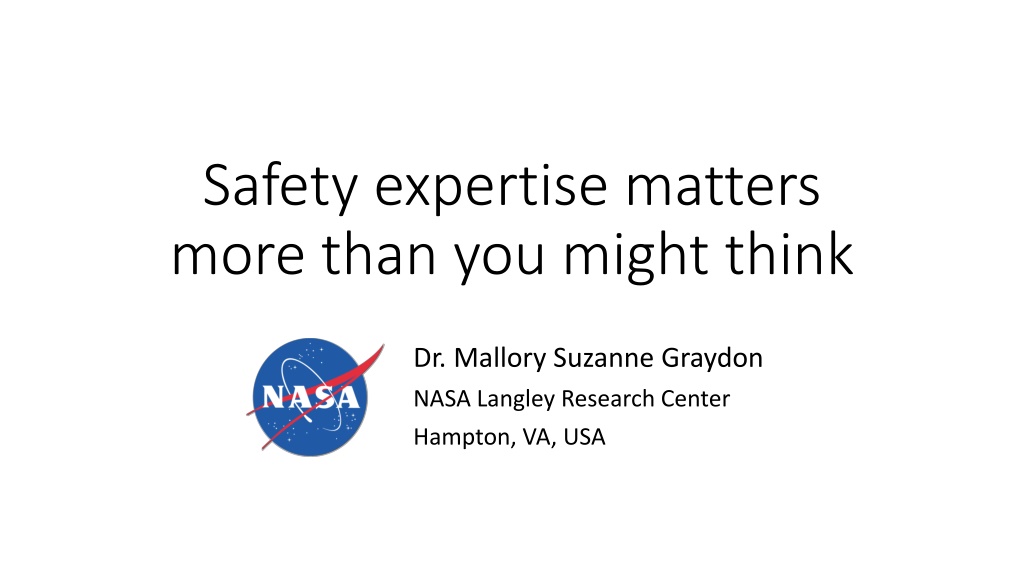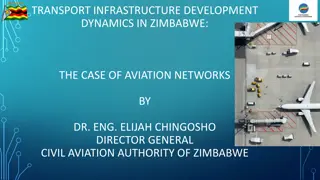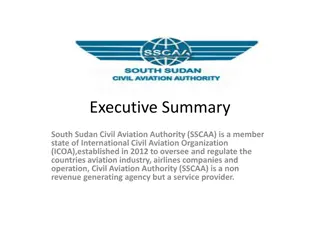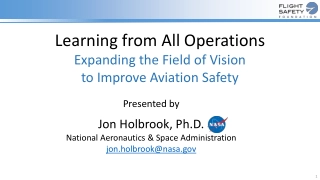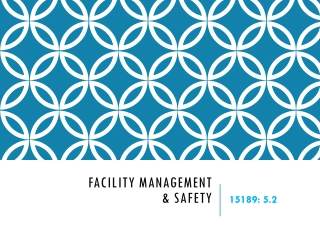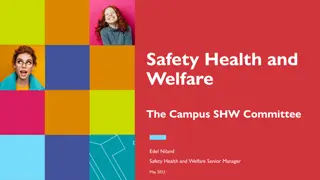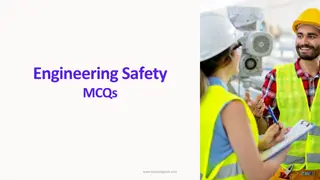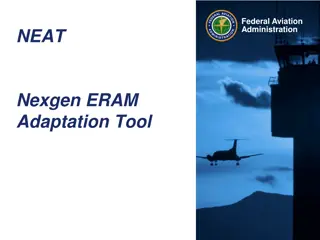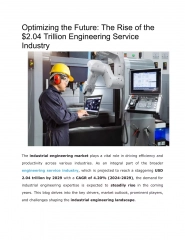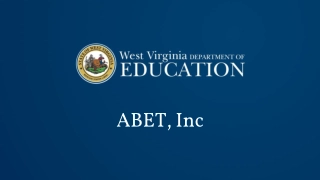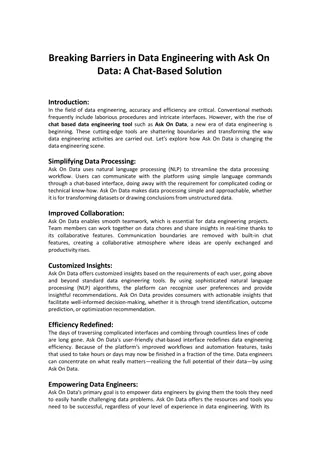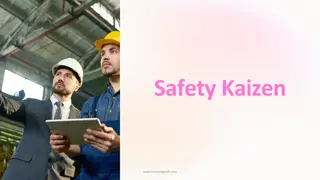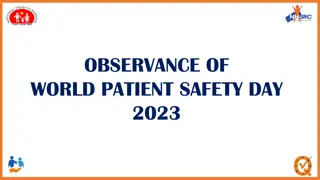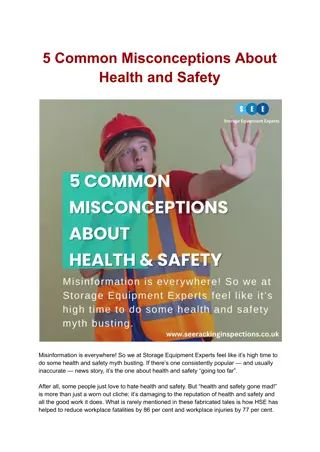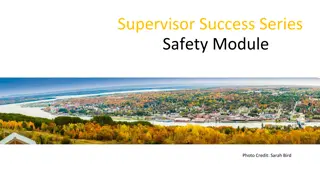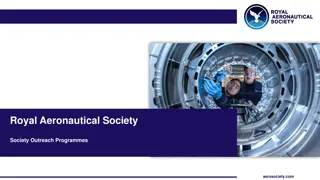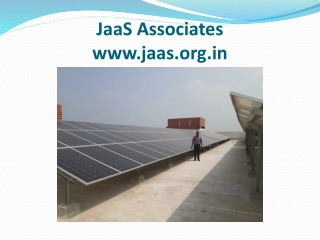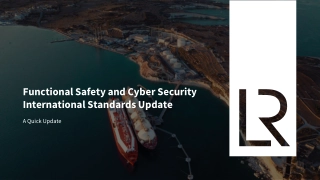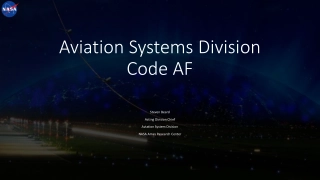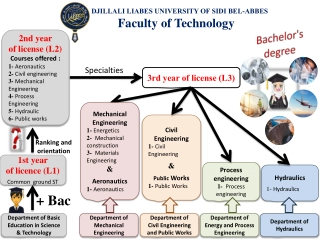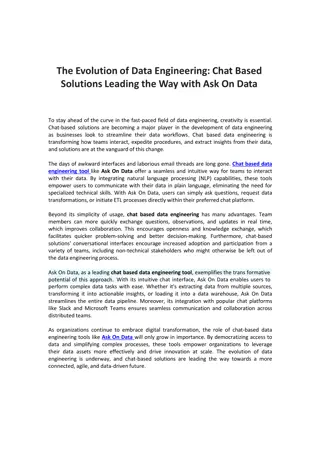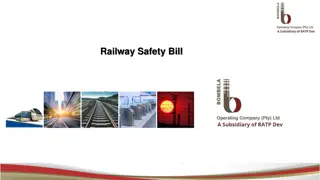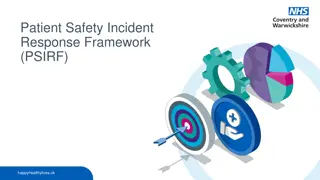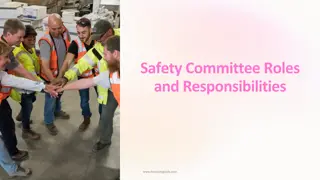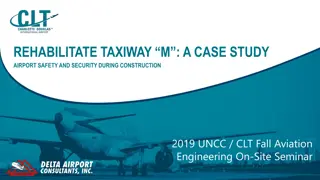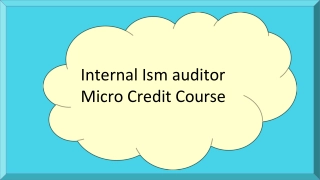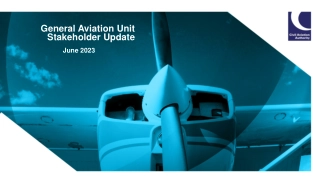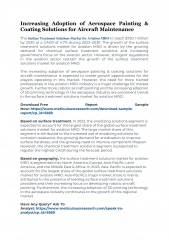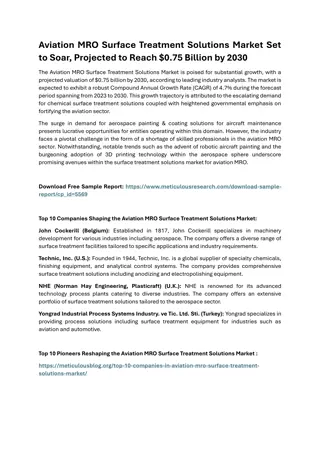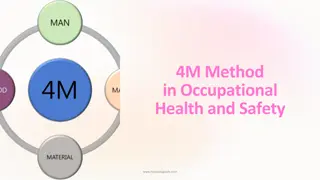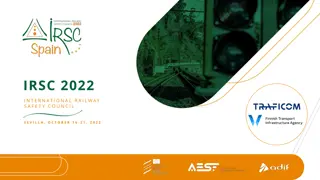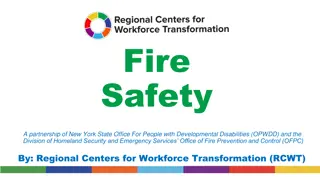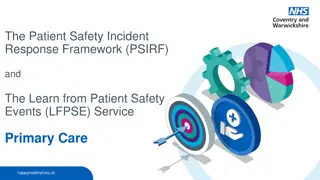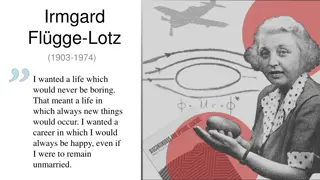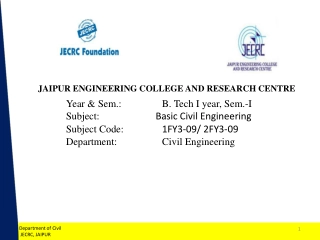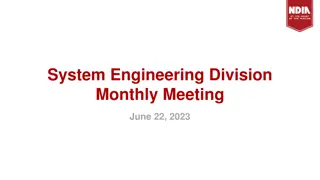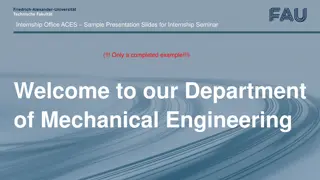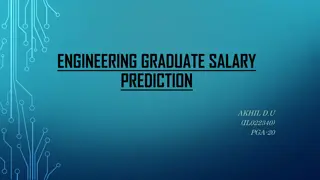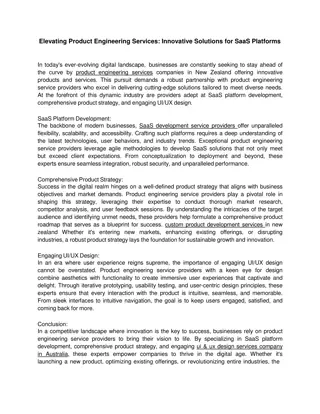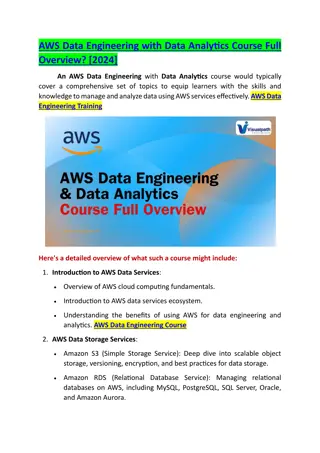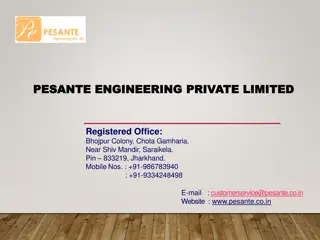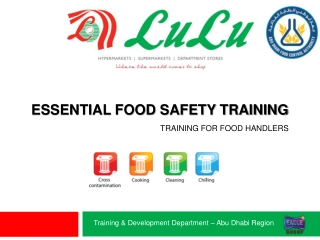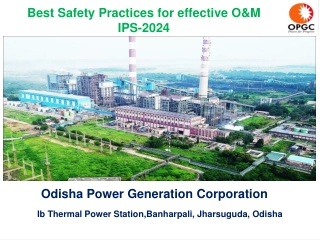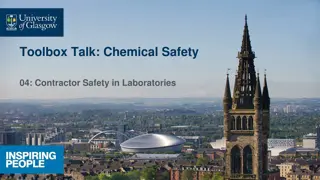The Importance of Safety Expertise in Aviation Engineering
Safety expertise plays a crucial role in aviation engineering to prevent catastrophic failures. Dr. Mallory Suzanne Graydon from NASA Langley Research Center emphasizes the significance of historical aviation safety incidents, the need for redundancy in parts, and the importance of safety analyses like Functional Hazard Analysis (FHA) and Preliminary Safety Analysis (PSA) in aircraft safety engineering processes.
The Importance of Safety Expertise in Aviation Engineering
PowerPoint presentation about 'The Importance of Safety Expertise in Aviation Engineering'. This presentation describes the topic on Safety expertise plays a crucial role in aviation engineering to prevent catastrophic failures. Dr. Mallory Suzanne Graydon from NASA Langley Research Center emphasizes the significance of historical aviation safety incidents, the need for redundancy in parts, and the importance of safety analyses like Functional Hazard Analysis (FHA) and Preliminary Safety Analysis (PSA) in aircraft safety engineering processes.. Download this presentation absolutely free.
Presentation Transcript
Safety expertise matters more than you might think Dr. Mallory Suzanne Graydon NASA Langley Research Center Hampton, VA, USA
First, some aviation safety history First powered aircraft fatality (1908): Wright Flyer A propeller failed Fragments damaged structure / flight controls The crash injured Orville Wright and fatally injured Lt. Thomas Selfridge What to do about this? Make better parts, of course! https://commons.wikimedia.org/wiki/File:1903-12_Wright-Flyer-side-view.jpg 2023-05-12 2
Hmmm. Thats not enough. More parts! Perfect parts are not possible: stuff is going to break Solution: redundancy! Piston radial engines failed with distressing frequency But if you ve got more than you need, and one fails https://commons.wikimedia.org/wiki/File:Ford_Trimotor.jpg 2023-05-12 3
But what if they all fail at the same time? We ve seen redundant things fail simultaneously UAL232: Engine debris disables three redundant hydraulic systems CI202: Voting logic fails three lanes of main/monitor computer pairs ARP4754B/ARP4761A process Common cause analysis (CCA) One particular risks analysis (PRA) identifies vulnerability to damage from uncontained engine debris https://en.wikipedia.org/wiki/United_Airlines_Flight_232#/media/File:UA232precrash.gif 2023-05-12 4
Aircraft safety engineering process SAE ARP4754B (soon!) defines the overall process: Functional hazard analysis (xFHA) Preliminary safety analysis (PxSA) Development assurance Safety analysis (xSA) ARP4761A (soon!) defines the analyses that 54 calls for AFHA ASA PASA & SFHA PSSA SSA Hardware and software design and verification (incl. DO-178C) Note: Some process steps are done at both the aircraft (A) and system (S) levels. 2023-05-12 5
Safety expertise is needed at all stages Functional hazard assessment: Identify failure conditions (FCs) Drives safety requirements Determine possible effects Classify those effects Drives development assurance levels Effects & classifications often come from expert judgment History of pilot training and action History of classifications Can check some (not all!)flight crew responses in a simulator Function Failure condition Flight Phase Effects Classification Decelerate on ground Loss of ability to decelerate with crew aware Takeoff FC: Aware of condition, crew will choose suitable location & minimize airspeed & weight. Excessive crew workload. Catastrophic 2023-05-12 6
Safety expertise is needed at all stages Zonal safety analysis (ZSA): Divide the aircraft into zones Identify equipment in zone Prepare checklist, e.g., look for: Drainage & accumulation Clearances around hoses Potential for damage due to maintenance activities Identify unexpected interactions Checklists are driven in large part by lessons learned Common mode analysis (CMA): Performed at both PxSA and xSA Helps to define requirements from independence principles & verify satisfaction of those requirements Again, based on checklists: Errors in software tooling? Errors in common software libraries? Errors in software function (e.g., aircraft dynamics models)? Again, expertise features heavily 2023-05-12 7
Process and intelligence are not enough Hazard analysis is guided enumeration Systematic, piece-by-piece examination of a system asking what-if questions FHA iterates over functions Hazard Operability Study (HazOp) iterates over flows in a plant schematic System Theoretic Process Analysis (STPA) iterates over controllers and control actions Systematic, piece-wise analysis helps ensure every corner is searched But analysts may not see what they don t know to look for Planning/ensuring sufficient mitigation requires judgment (expertise) If you think a 15m tsunami is not credible, you don t build for it If you think Byzantine faults are vanishingly rare, you don t build in Byzantine fault tolerance 2023-05-12 8
History reveals the unknowns to us 1972 Eastern 401: Crew resource management is essential 1982 British Airways 9: Volcanic ash is really bad for turbine engines 1982 Air Florida 92: Engine pressure probe icing creates false thrust reading 1988 Aloha 243: Short cycles in humid, salty air accelerates fatigue 1988 TACA 110: Engines react differently to hail than to rain 1989 United 232: Uncontained engine debris can fail triply-redundant hydraulics 2008 British Airways G-YMMM: Sticky ice can clog fuel systems 2009 Air France 447: Training for high-altitude stall is necessary 2020 United N16009: Repeat clearance beats confirm 2020 Titan Airways G-POWN: Kathon overdose can lead to dual engine failure 2023-05-12 9
But all thats about systems, not software Planes aren t falling out of the sky over misplaced semicolons DO-178C might not be infallible, but it works for now In accidents, software usually performed per its spec. And where the specs are wrong, it s often about management of fault cases And sometimes human factors 2007 Boeing 777 9M-MRG: Fault management logic puts a known-faulty accelerometer back into service 2011 Airbus A330 VH-QPA: Fault management logic can t handle spiky angle-of-attack data 2020 Airbus A330 B-18302: Rudder oscillation at touchdown fails all 3 (main-mon.) flight computers 2023-05-12 10
Safety expertise is accumulated wisdom We learn from stuff going wrong Not always in accidents, and not always published Things get caught at the design stage We learn from being continually curious and humble The best designers are never not thinking about product safety. [They] recogniz[e] fallibility as hard-wired in humanity. [They] are thus always prepared to uncover potential threats to safety, often subtle and seemingly implausible threats, and to chase them to bitter ends. Frank McCormick We learn from each other Accident/incident reports are remarkably open/transparent 2023-05-12 11
Theres no substitute for expertise You can t test your way to perfect requirements Pilot-in-the-loop simulation is too expensive to test every crew reaction Can t test everything; you need to know which axes/variables might matter You can t just simulate your way to perfect requirements Simulations only reflect the parts of reality they are created to reflect Do road simulations for car vision systems include 7-foot fuzzy pink werewolves? Do the images show effects from dead pixels, gunk on lenses, dust catching light, etc.? Do the images have ramen shop logos that look like wrong-way symbols? You can t calculate your way to perfect requirements Need to know which formulae hold where, which data is applicable, etc. 2023-05-12 12
Big questions turn on safety expertise There is a pronounced split on interpretation of the requirement that no single failure will result in a catastrophic failure condition Some folks maintain that no single failure implies no single error Some interpret this as requiring mitigations such as dissimilar architecture Some folks insist dissimilar architecture is not always required or even helpful A lot of the debate turns on expertise derived from limited evidence Understandings of the kinds of failures that happen and could happen Experience of having deployed various kinds of redundancy A lot of this is company proprietary data 2023-05-12 13
Robust monitoring and transparency are key Civil aviation has a long and robust practice of accident and incident investigation Investigators work with airframers and engine manufacturers Aircrews and maintainers report, e.g., in the Aviation Safety Reporting System (ASRS) This is something new sectors would do well to emulate Civil aviation safety culture is remarkably open & transparent Accident reports reveal detail that folks would prefer not to share No one likes bad news but we have anonymous reporting (e.g., in ASRS) The benefits of learning from each other are seen as worth protecting 2023-05-12 14
Novelty must be approached cautiously Don t embrace novelty for novelty s sake Even when it doesn t cost lives, lessons can be expensive E.g., Boeing 787 fleet grounded after lithium- ion battery fires Try out novelty in safer / more risk- tolerant applications Cautious buildup of experience with turbines is how we worked up to today s long overwater flights in twin-engine aircraft A novel autonomous crop duster crashing in an unpopulated field is better than a self- flying robotaxi crashing in Manhattan Autonomous monitoring of wildland fires might provide benefit worth the unknown risk of deploying untrusted technology 2023-05-12 15
Safety expertise must be cultivated Expertise must be passed down No textbook holds all the expertise in the minds of good engineers People retire People quit People die Young engineers don t know what they don t know Promotion process matters Mentorship matters Expertise must be brought in where it is needed New ventures may lack an experienced old guard Different kinds of expertise Crop dusters will tell you about flying near power lines Maintenance folks know how design choices affect maintainability Etc. There is a market for ex-DERs 2023-05-12 16
Implications for safety reasoning Reaching agreement requires shared understanding When a regulator and developer disagree, it can be over background Understanding of how likely circumstances are to arise Understanding of failure modes of technology Understanding of when prior experience or common wisdom isn t relevant Dialogic argument is good at unpacking positions and finding the disparities But you only need this where you need it! 2023-05-12 17
2023-05-12 18
